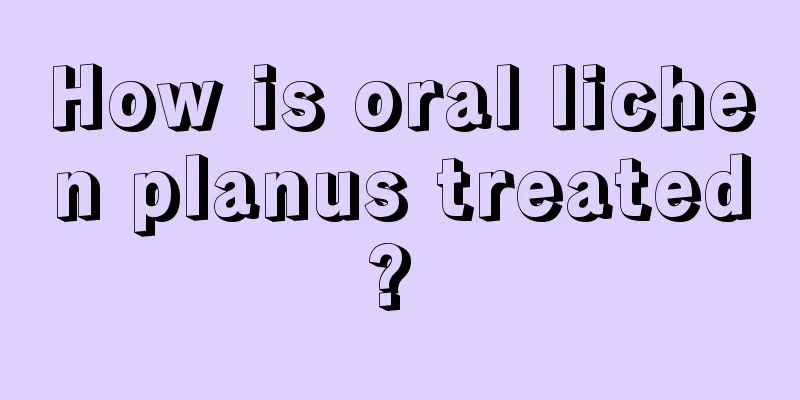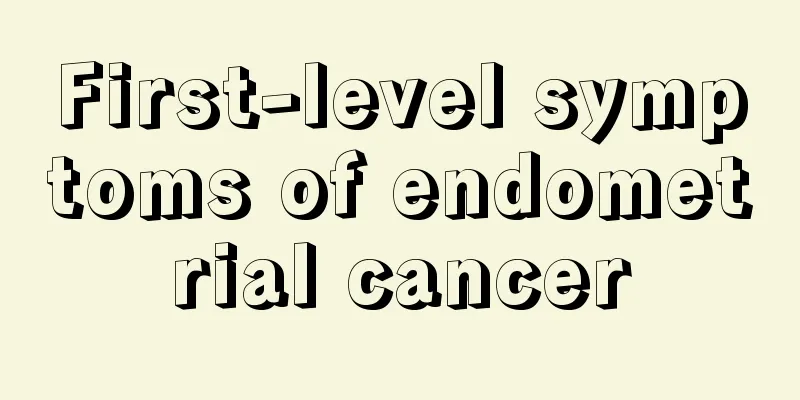How is oral lichen planus treated?

|
Oral lichen planus is a relatively common oral disease that is multiple and common, and its causes are relatively complex and diverse. Anyone who has had oral lichen planus knows that the burning and stinging sensations during an attack are very painful, not only affecting normal eating and speaking, but the repeated attacks are also a mental challenge. So how do you treat oral lichen planus? 1. Causes The pathogenesis of this disease has not yet been fully clarified. Current studies have shown that its onset is related to mental factors (such as fatigue, anxiety, tension), immune factors, endocrine factors, infection factors, microcirculation disorders, trace element deficiency and certain systemic diseases (diabetes, infection, hypertension, gastrointestinal dysfunction). 2. Disease symptoms Most patients have no symptoms and the disease is often discovered accidentally. Some patients experience local sensitivity and burning pain when exposed to spicy, hot, sour, or salty stimuli. Some patients experience roughness, numbness, burning sensations in the mucosa, dry mouth, and occasional crawling and itching sensations. 3. Disease Treatment Topical treatments 1. Pay attention to eliminating local irritants, such as tobacco, alcohol, tartar, residual roots and crowns, sharp tooth tips, caries or tooth defects, poor repair factors and dental filling materials. 2. Adrenal cortical hormone: available in the form of ointment, film, spray, etc. 3. Local blockade: For erosive ulcer type, hormone injection at the base of the lesion area can be used. Systemic treatment For acute, extensive or multifocal erosive lichen planus, systemic medications may be used: 1. Glucocorticoids and other immunosuppressants: They can be used in combination for patients with severe or frequently recurrent oral ulcers, and the use depends on the condition. 2. Immunoenhancer: for those with impaired immune function (combined with the patient's general condition and laboratory immune test results). 3. Traditional Chinese Medicine: Treatment based on syndrome differentiation. 4. Other auxiliary treatment drugs: vitamin supplements, etc. 5. Tripterygium wilfordii, Malus kunmingensis, Chloroquine Chinese Medicine Treatment Traditional Chinese medicine treatment can be divided into local treatment and systemic treatment: 1. For local treatment of erosive ulcer type, you can use Yangyin Shengji Powder, Xigua Shuang, Bingpeng Powder, etc. 2. Systemic treatment is based on the principle of syndrome differentiation and treatment. Liuwei Dihuang Pills, Xiangsha Yangwei Pills, Sanjieling Pills, etc. can be used according to different syndromes. |
<<: What effect does Platycladus orientalis leaves have on hair
>>: What are the causes of oral blood blisters?
Recommend
What are the advantages of vascular interventional treatment for liver cancer? Less trauma
The advantage of vascular interventional treatmen...
Clinical manifestations of lung cancer metastasis
Lung cancer is prone to distant metastasis or loc...
How to effectively treat lumbar myositis
Psoas myositis is a disease in which the lumbar m...
How long is the appropriate time to soak your feet after a meal
Foot soaking has become a habit for many people, ...
Experts explain specific measures to prevent colon cancer
With the change of people's eating habits, co...
Is it okay to leave thyroid nodules untreated? The complications are very serious
If thyroid nodules are not treated early, they wi...
Will I get pregnant if I take too many birth control pills?
Taking too many birth control pills will not impr...
The efficacy of hawthorn seed pillow
If you eat hawthorn alone, it tastes sour and swe...
What are the early symptoms of lymphoma? Are they serious?
Lymphoma is a disease that people are afraid of b...
How to effectively remove frostbite scars
After frostbite heals, it is easy to leave some f...
What are the benefits of family travel
Many families have a family trip every year. Ther...
What are the methods of youth and anti-aging
There is a view in society that women who are too...
What are the benefits of massaging the palms of your hands
As one of the most important organs of human bein...
What is the difference between alcoholic liver disease and fatty liver disease?
Many people don’t know much about alcoholic liver...
The correct way to apply lemon on your face to remove acne
Lemon has a good effect on beauty and skin care. ...









